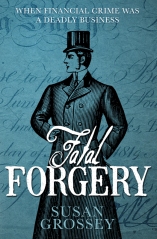We’ve all been rather obsessed with the Fourth Money Laundering Directive. Well, we have in my house. Well, I have – the cat’s not that bothered. And as a result the UK’s new Serious Crime Act 2015 has slipped into the room rather unnoticed. It was enacted on 3 March 2015, and various bits of it come into force on different dates. But the part that I am interested in today is S45 – offence of participating in activities of organised crime group – which came into force on 3 May 2015.
I’ll give you the word of the law first: “A person who participates in the criminal activities of an organised crime group commits an offence. For this purpose, a person participates in the criminal activities of an organised crime group if the person takes part in any activities that the person knows or reasonably suspects (a) are criminal activities of an organised crime group, or (b) will help an organised crime group to carry on criminal activities. ‘Criminal activities’ are [those] that are carried on with a view to obtaining (directly or indirectly) any gain or benefit.”
There is the usual global application: the underlying criminal activity can be committed anywhere in the world as long as it would be a crime in England or Wales. (Although, interestingly, for you to be charged with the participation offence, at least one of your acts of participation – but not all of them – must have taken place in England or Wales.)
The intention of the offence, as the government said from the outset, is to target those who “oil the wheels” of organised crime by participating in activities – e.g. providing materials, services (perhaps even literally oiling wheels), expertise or information which contributes to the overall capability of the group – but without being aware of the precise nature of the criminality in which they are involved. The wording of the offence is such that it can also be used to prosecute those who head criminal organisations but who do not themselves directly participate in the commission of the criminal acts – the ones the press loves to call “Mr Bigs”. (No, not Great Train Robber Ronnie – he was Mr Biggs.) Recognising, for instance, the work of undercover police officers, it is a defence to prove that your participation in the activities of an organised crime group was “necessary for a purpose related to the prevention or detection of crime”. But if this – or any other – defence fails, you’re going daaaan for five years.
It will be interesting to see how this offence is used against professional enablers – those who work in the regulated sector and use their skills for evil. According to an interesting article published by the Law Society in December 2014, “enablers often rely on the defence that they were unaware of the precise nature of the criminal activity in which they were involved to avoid prosecution for conspiracy”, and this new offence will make that defence, well, indefensible. The Law Soc suggests some of the people who might be caught: “the courier who transports drugs for an organised crime group without knowing what they are carrying [or] the employee who provides their organisation’s customer data to an organised crime group without knowing how the group intends to use that data [or] a solicitor who facilitates the property transactions related to organised mortgage fraud, or who uses their access to clients in custody to help them continue to pursue their criminal activities”. We await the first prosecution with glee and bated breath.





















Being a Smurf just got more perillious!
And that’s without accidentally putting all of your clothes into a blue wash!
…as the new law aims to include those associated to Organised Crime Groups, those that often rely on ‘turning a blind eye’ or ‘I didn’t know gov’ as a defence, (providing the person ‘knows or reasonably suspects’ and the boys in blue have evidence to prove otherwise, same as some existing offences), this may not be a bad thing. Committing a crime ‘by omission’ something U.S. Law has recognised for a long time can only be a good string added to the bow to ensure the arrows hits those who grease the wheels of OCG’s without getting their hands dirty., it’s not the smurfs to worry about, it’s those that make the smurfs!
Dear Phil
Welcome to the blog, and thank you for this very pertinent summing up of the benefits of the new offence. Police, investigators and MLROs have long complained about being able only to put the foot soldiers out of business, not those pulling the strings (if a foot soldier has strings…), so this may well help.
Please do keep reading and commenting!
Best wishes from Susan
Pingback: Taking the criminal temperature | I hate money laundering
Pingback: Always take legal advice | I hate money laundering